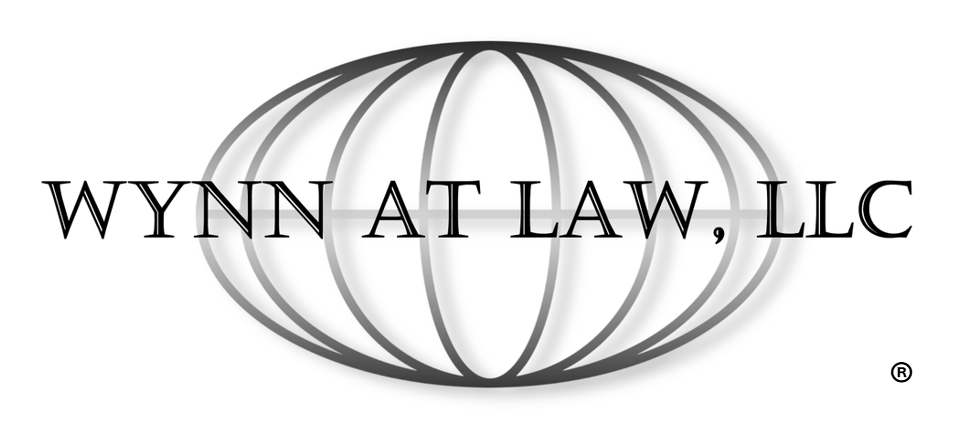Congratulations, you are almost the owner of a new home! It is an exciting time, and it is important to celebrate every step of the real estate buying process.
Before you can move into your new home, there are a few critical steps to complete. As a buyer, it is essential to check off every requirement to avoid issues and delays at closing.
Buying a home is often the largest purchase a person makes in their life. Before signing any paperwork, you must review and understand the documents. A real estate lawyer is beneficial in explaining the complicated legal documents and inspecting the contracts. To assist with the buying process, Wisconsin real estate lawyer, Shannon Wynn, created this buying guide and buyer’s checklist to help new home buyers. This helpful guide will review the closing timeline, answer common questions, and provide a closing checklist for real estate buyers.

Real Estate Closing Timeline for Buyers
Buying a home is generally a long, complicated process with many steps and procedural formalities. The Offer to Purchase begins the process and includes the price the buyer will pay for the property, the closing date, contingencies that must be met, and other important terms and conditions for the transaction. Once an offer is accepted, it is time to prepare for closing. The purchasing process usually takes 30-60 days from when an offer is accepted.
Hiring an experienced real estate lawyer and realtor make the closing process significantly smoother. These professionals are valuable in assisting you through the stressful contract-to-closing period. If you are looking for a Wisconsin real estate lawyer to help you with the closing of your new home, contact Wynn at Law, LLC at 262-725-0175 or send us a message.
Home Buyers Pre-Closing Checklist
Resolve Contingencies
The initial Offer to Purchase will have contingencies that need to be met before the transaction is finalized or closed. The most common contingencies are: home inspection, appraisal, and financing. The steps below will cover these contingencies and other common transaction conditions.
Order A Home Inspection
It is highly recommended to have a professional home inspection conducted by a licensed home inspector. The inspection is the buyer’s opportunity to identify any significant issues, known as defects, before closing. The home inspection is also a chance for a buyer to learn more about the features of the home. There are many systems and features for the inspector to check. Below is a list of items that you may want to have the inspector review:
- Building structure and foundation
- Roof and chimney
- Plumbing
- Electrical
- Heating/cooling system (HVAC)
- Windows, doors, floors, and walls
- Land grading and drainage
Once the inspection is finished, the inspector will create a report that notes any defects that were identified during the physical inspection.
Depending on the transaction, the Offer to Purchase may include additional tests which are separate from the home inspection, such as:
- Septic inspection
- Radon test
- Mold test
- Well inspection
- Well water test
- Asbestos test
If the home inspection or test identifies defects in the property, it may be worthwhile to negotiate with the sellers for a credit/price reduction or for the repairs to be completed prior to closing. A Wisconsin real estate lawyer can advise buyers about inspection contingencies and prepare an Amendment to the Offer to Purchase to account for the repairs.

Order An Appraisal
Lenders require the real estate to be appraised and will not commit or approve a loan until the appraisal is completed. For this step, an appraiser may visit the property and ensure that the purchase price is considered fair market value. The buyer must check that the appraisal value is at or above the contract price before proceeding with the closing process.
Order A Survey
As the buyer, you may be interested in having a survey of the property conducted. If listed as a contingency in the offer, the seller will typically pay for the survey. In some cases, there may already be a recent survey on record.
Get Final Mortgage Approval & Lock In Your Rates
Buyers usually finance their purchase with a mortgage from a bank, credit union, or other commercial lenders. Once your final contract has been signed, it is vital to provide your lender a copy. Before closing, it is beneficial to discuss the interest rate with the lender. Locking in the interest rate is important because even small fluctuations in the rate can increase your monthly payments.
Shortly before closing, your lender will be able to provide you with a loan commitment; the commitment states that you will receive a loan from the lender in the amount necessary to purchase the real estate.
Note: All interested home buyers should be pre-qualified for a mortgage loan before beginning a home search. Pre-qualification makes the offer to purchase and final approval process quicker.
Check The Property Title
Prior to closing, you need to conduct a full review of the property title to ensure that the seller is legally able to sell the property. A title search is an essential step in the pre-closing process. A title search verifies that the seller can legally transfer ownership of the property and that the property has no easements, disputes, or liens.
In this step, all existing records, including deeds, mortgages, paving assessments, divorce settlements, liens, and other public documents are thoroughly reviewed and examined. A property owner must fix errors, disputes, tax debts, and liens on the title prior closing. Buyers should have a real estate lawyer review the title insurance commitment for an additional layer of protection against issues with the title.
Purchase Homeowners Insurance
All lenders require that buyers purchase homeowners insurance. This type of insurance protects the lender from a loss if the home is damaged or destroyed. Some lenders only require you to purchase homeowners insurance in the amount equal to your loan. It is recommended to have coverage equal to your property value and personal belongings replacement cost.
Conduct A Final Walk-Through Of The Home
The final walk-through allows the buyer to confirm that the condition of the property has not changed since the Offer was accepted. Typically, the final walk-through occurs in the 24 hours before the closing. This step enables buyers to check that the home is vacated, clean, and in the expected condition. During the final walk-through, take your time to verify all repairs and that all items/appliances/furniture included in the Offer to Purchase are correct.
Review The Closing Disclosures (CD)
The Closing Disclosure is a document sent to a Buyer from their lender. This document will include important information about your mortgage, including your monthly mortgage payments, loan interest rate, length of your mortgage, and additional fees related to the closing. The buyer must sign the CD at least three business days prior to closing to ensure there are no issues.
Confirm The Closing & Move-In Dates
The closing date is set in the original Offer to Purchase. Most often, you are able to move in the same day as closing, but occupancy information is also in your Offer to Purchase.
Some additional steps may be unique to your home buying situation. Contact a local Wisconsin real estate lawyer to ensure that all legal documents, correspondence, and closing criteria are lawfully met.

Buyers Closing Day Checklist – What To Expect
Once all the contract contingencies are met and the steps listed above have been completed, the transaction can close. At the closing, the buyer and seller will meet at the title company’s office at the agreed-upon date and time. Buyers should plan to sign numerous, complex legal documents and spend up to an hour at the closing.
Below are some of the documents that buyers may sign at the closing:
- Promissory note
- Closing Disclosure
- Closing Statement
- Mortgage
- Title Company Disclosure
It’s wise to have your real estate lawyer attend the closing with you to explain the documents and to answer questions. Lawyers often spot potential problems that can be fixed and will assist with unanticipated issues that may arise.
Items Buyers Should Bring To Closing
- Photo ID (official government-issued ID, such as driver’s license or passport)
- Proof of wire transfer, escrow account information, or cashier’s check
- Checkbook

After Closing Checklist
After closing, the property deed is recorded at the county Register of Deeds office. The deed is then returned to the buyer via mail. This filing puts the buyer’s ownership of the property on the public record. After the closing, the buyer will also receive a copy of the title insurance policy for their records.
Congratulations – once the closing process is completed, you have purchased your new home!
Do I Need A Lawyer For The House Closing Process?
Wisconsin does not require a real estate lawyer for real estate transactions, but it is highly recommended for buyers. Your Wisconsin real estate lawyer will protect your interests and make sure all legal documents, correspondence, and closing criteria are lawfully met.
Wynn at Law, LLC Helps Buyers Throughout The Real Estate Closing Process
Buying a home is a detailed process that takes time to complete. As the buyer in a real estate transaction, it is always better to have a real estate lawyer on your side. By law, only a real estate lawyer can provide you with legal advice during the home buying process, not a real estate agent, loan officer, or closing agent. If you need a Wisconsin real estate lawyer when buying a property, please contact Wynn at Law, LLC by phone at 262-725-0175 or send us a message on our website’s contact page. Wynn at Law, LLC has law offices located in Lake Geneva, Salem, and Delavan, Wisconsin.
Continue Reading: Real Estate Closing Checklist for Sellers


